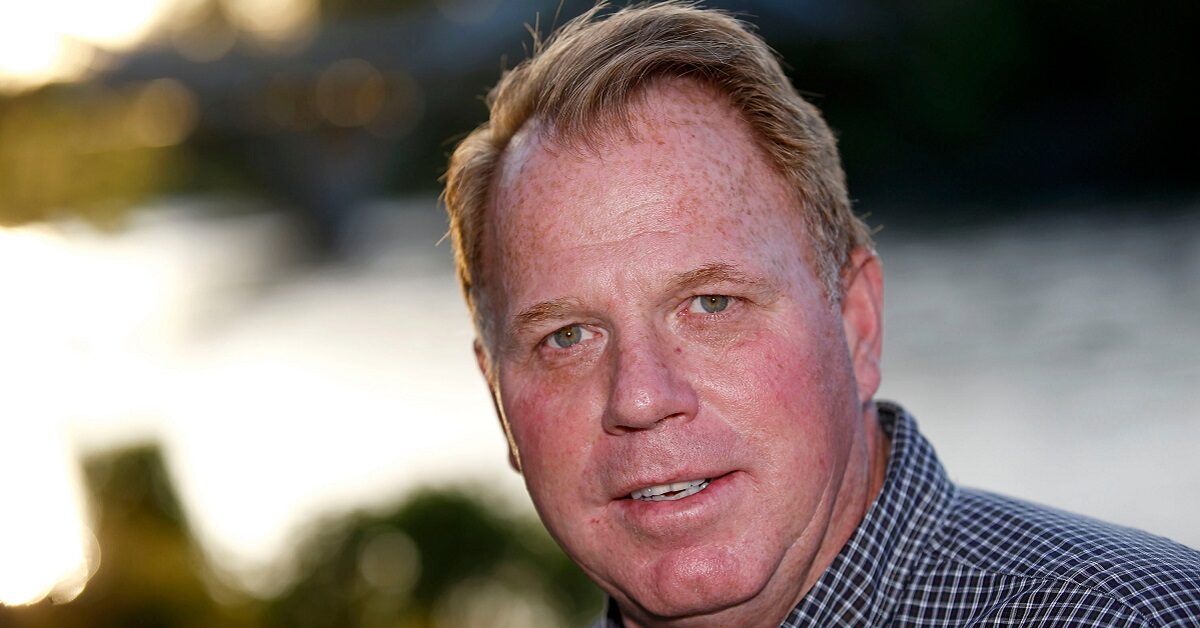

"Now, only 90% of the population hates them," Thomas said. Speaking in a video posted to his YouTube channel in April, Thomas said if the couple "didn't have this multimillion-dollar public relations team, everyone would hate them."

In the years following, Thomas has criticized Meghan and Harry in the press. But writing in legal documents in April 2020, Meghan said his refusal to attend was due to being "publicly shamed" after the press reported that Thomas had staged paparazzi photos of himself. At the time, Thomas said he didn't attend the couple's nuptials due to having a heart attack just days before. Thomas and Meghan have been estranged since her royal wedding to Prince Harry in May 2018. It's a travesty how much he's been tortured and how much he's had to go through thanks to my sister's disregard the past few years. We ask for privacy for the family, for his health and wellbeing," Thomas' eldest daughter, Samantha Markle, told Wootton. Wootton wrote that Thomas had "remained hopeful" that he would reunite with Meghan and meet Prince Harry for the first time while in London, as the couple previously announced their plans to attend the Queen's Jubilee. "Thomas is currently resting in stable condition," the representative said. "But, in a cruel twist of fate, he will now be unable to make the trip as he recovers in hospital, just like he missed his daughter's wedding to the Duke of Sussex after suffering from a heart attack," he added.Ī representative for Thomas confirmed to Insider on Wednesday that he had previously planned to attend the Jubilee before his stroke.
THOMAS MARKLY TV
"I am devastated to report this news, just seven days before Thomas would have joined me in London to celebrate the Queen's 70th year on the throne for a TV special on my GB News show, fulfilling his long-held wish to visit Windsor Castle," Wootton wrote. Retrieved 8 October 2015.Dan Wootton, who has interviewed Thomas on multiple occasions, wrote in the Mail Online that Thomas was due to travel to London to celebrate the Queen's 70 years on the throne next week. 20610 Utility Shooting Brake Coachbuilder T B Scotney".
^ "Factories Act 1961 s.117 exemptions for February 1970". ^ "Photographs (Index of Museum Photo-Archive)". ^ a b Nick Walker: A–Z of British Coachbuilders 1919–1960. : Cite journal requires |journal= ( help) " Road Transport Media Ltd ( Commercial Motor archives). They are of steel and timber construction with. Ives, were the builders of the bodies of these two vehicles. ^ "A New Semi-Trailer for maximum loads. ^ a b c d e f g pages 5-28, Ken Ballard, Old Industries of St Ives Revisited, Friends of the Norris Museum, Norris Library and Museum, St Ives Huntingdonshire, 2002. Ĭoachbuilding activities in the late 1940s also took in timber frame "woody" station wagon bodies for traditionally constructed luxury cars from manufacturers such as Alvis and Lea Francis. By the 1970s the company was disparagingly identified as by one source as a "packing case manufacturer" or, more respectfully, as "packaging engineers". Scotney's increasingly focused on specialist packing cases, notably for the Ministry of Defence and the aircraft industry. Although a wide range of timber products were produced during the 1950s the burgeoning plastics industry took their market. It was still at the same address in 1970, although by 1973 the business was no longer focused on truck trailers or car bodies, and Thomas Scotney himself had died in 1959 so was no longer running it. Scotneys was well established during the 1930s, incorporating its own timber mill and producing a range of timber based products. Scotney Ltd in 1920 by a former World War I airforce pilot called Tom Markley Scotney (1897 -1959), but its origins as a manufacturer of timber fencing and other structures for the agricultural businesses in the region went back to the enterprise established several decades earlier by Scotney's father, William Scotney (1869-1949). The business was set up with the name Tom M. Scotney had their premises beside the London Road in St.Ives, a small town on the southern edge of The Fens in Eastern England. After two takeovers Scotney's closed its doors in mid-1970. In the late 1940s Scotney, obliged to diversify, added heavy truck trailers and related activities including timber-framed coachbuilding for local motor dealers during the post-war steel shortages. Scotney's was greatly enlarged by wartime defence contracts which included prefabricated buildings for searchlight installations and buildings for other special purposes in other counties and hundreds of special wooden boats for the D-day landing in France. Scotney Ltd was a British timber and joinery and timber construction business in St. Alvis TA 14 Estate with timber frame body possibly by Tom M.






 0 kommentar(er)
0 kommentar(er)
